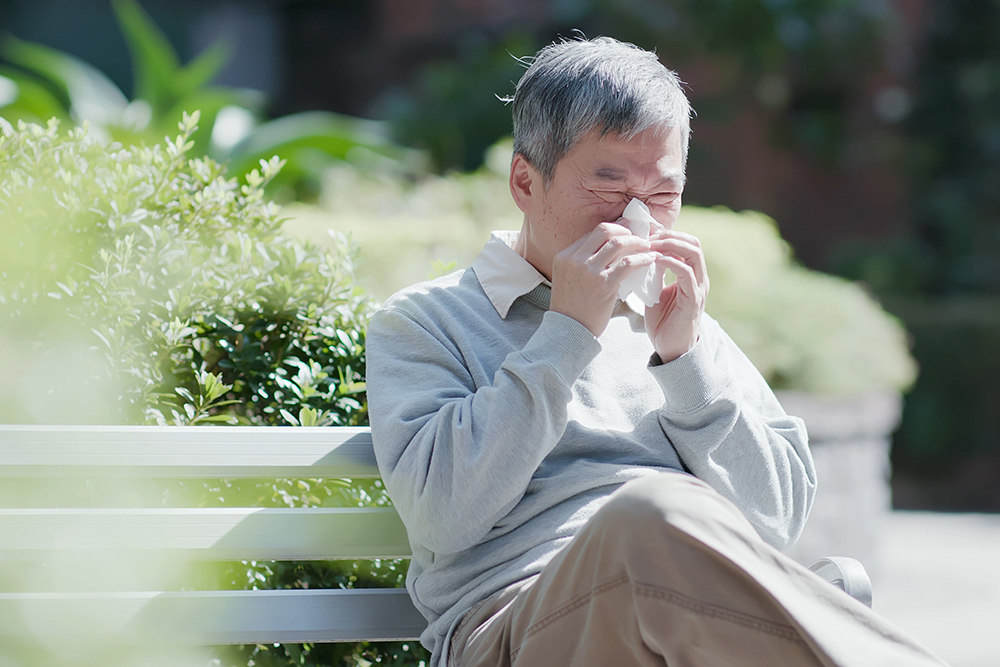Spring is on The Way: How to Support Allergy Sufferers

Allergies can cause annoying and inconvenient discomfort, especially during the spring months. For those who don’t have an allergic reaction to pollen and other seasonal triggers, you may want to consider helping those who are struggling with it.
Living with an allergy sufferer can help you understand how uncomfortable the person may feel. However, did you know that there are things you can do to help them?
By removing the allergens from you and the home or your senior loved one’s apartment or living space, you can help decrease their risk of an allergic reaction. If you are tired of the constant sneezing, read on to find out how to support allergy sufferers.
1. Start by dusting and vacuuming often to get rid of allergens
Allergens can settle inside the home, and this includes the likes of dust. It is absolutely normal to have dust in the home; however, dust can be a nightmare for a person who suffers from an allergy.
Ensuring you keep the house clean can reduce the dust in the home. This, in turn, can help a person feel good and healthy. For example, when a person suffers from a dust allergy, they may sneeze a lot and look like they have a cold.
While this may feel like you must vacuum and clean every minute of the day, this fortunately isn’t the case. So long as you habitually vacuum at least once a day and clean the home more than once a week, it will help the allergy sufferer greatly.
Removing the allergens from the home is the first step to helping those with allergies.
2. Wash bedding in hot water at least once a week
Another thing that can cause allergies is dust mites. These little creatures live inside bedding and are difficult to see with the naked eye. However, if you suffer from an extreme case of dust mites, you can even wake up with bites.
Because we sleep inside the bedding, we are putting ourselves at risk of suffering from an allergy every single night. Those who have this allergy may not even understand why they feel congested.
Washing bedding in hot water once a week is a great way to remove allergens. The hot water can kill dust mites, reducing the effects of allergies. So, make it a habit to change your bedding every week and wash it in hot water.
3. Get an air purifier to help remove allergens from the air
An air purifier is a great way to remove floating allergens. They are so advanced these days, too, that they can run quietly in the background of a room.
Getting rid of impurities in the room can help to reduce the effects of allergies. Using it during the springtime is best when allergens are at their worst — for example, all of the pollen floating in the air.
Air purifiers also help remove dust allergens and anything else that is causing a person to feel unwell.
While they may not obliterate the allergens entirely, most do a great job at reducing them, so that the positive impact is potentially worth the price tag.
4. Stop pollen and other allergens at the door
Taking proactive measures may be necessary for those who suffer from truly the worst seasonal allergies.
One measure is to keep the windows closed to prevent pollen from entering the home entirely. This is a straightforward way to stop pollen and other allergens from getting inside.
Another thing that you can consider is taking a shower once you arrive home, and changing into fresh clothes. Pollen from the air can travel via your skin and clothing. It defeats the purpose if you close the windows, but then arrive home with pollen and other allergens still on your person.
So, keep this in mind for an allergy-free home!
5. Encourage drinking plenty of fluids, especially water, to help flush out any allergens ingested
Drinking lots of fluids is a great way to flush out allergens. Unfortunately, when we are dehydrated, our body produces more histamine, which will only worsen allergies. Our sinuses also become inflamed and dry when dehydrated, exacerbating allergy symptoms.
To help stay hydrated and flush out allergies, carrying a water bottle all day is a great option. Not only will they feel better, especially in the hotter weather, but they may even notice that their symptoms aren’t as bad as usual.
Even if it doesn’t help the allergies, they will stay hydrated by upping their daily water intake.
6. Make sure they take medication prescribed by their doctor to help relieve allergy symptoms
Having hay fever and other allergies can persuade allergy sufferers to stay at home. This is never good, especially during the warm and lovely spring months when they most want to be outside.
While everyone else is enjoying their time outdoors, allergy sufferers can be confined to their own house, or worse, just their bedroom. If allergies are terrible this time of year, speaking to a doctor is a great way to help manage them.
There are many ways to help with allergies, so it is a good idea to find out what methods will tackle the allergy symptoms best.
Final Thoughts
Suffering from a bad spring allergy can be a nightmare. Because of this, you will want to help those close to you who are burdened with allergens, especially senior family members who may need extra support.
Fortunately, you can do many simple things to relieve the symptoms, from closing the windows and washing the bedding in hot water, to investing in an air purifier, to staying hydrated and flushing out allergens.
Experiment and find out what works best for your loved one, so they can lead a normal, sneeze-free life this spring.



